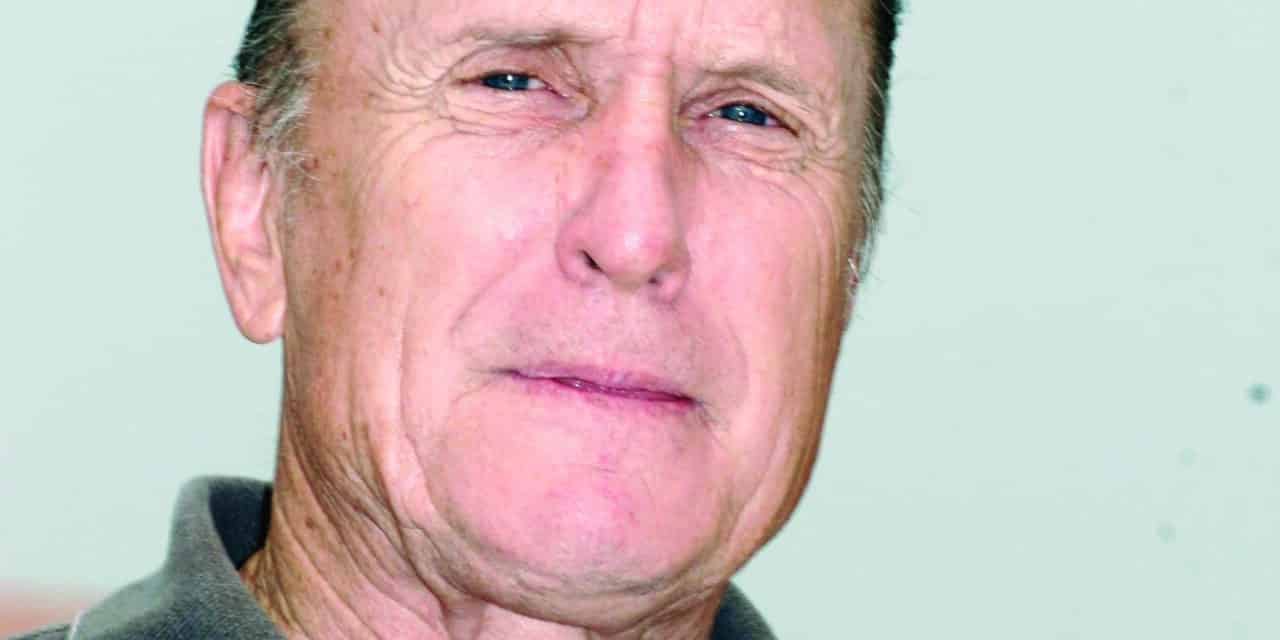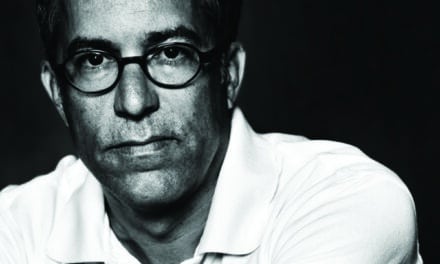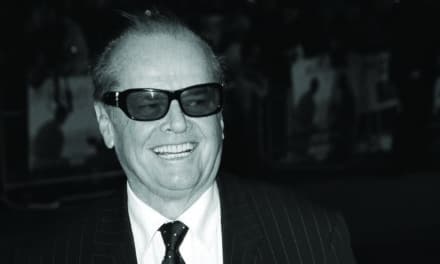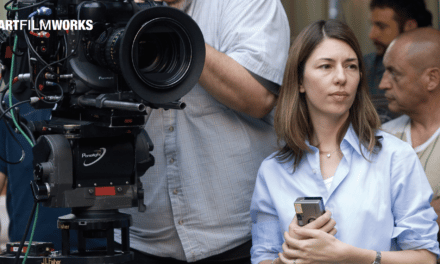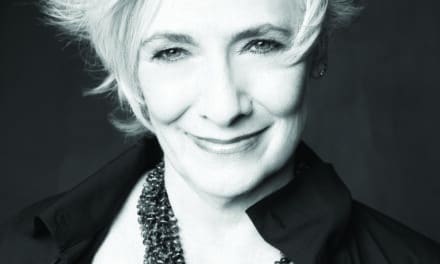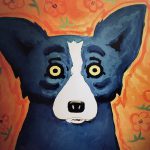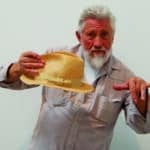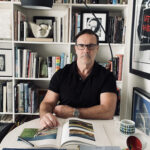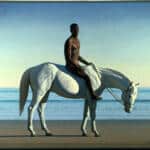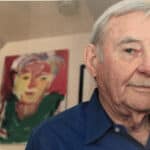DINA EASTWOOD TALKS WITH ROBERT DUVALL
ARTWORKS Fall 2009
Robert Duvall’s CV would be coveted by even the most seasoned actor. He has starred in or been featured in more than 75 films. You’ve seen him a hundred times in everything from 1960’s “Joe Kidd” to “Godfather” to “Popeye” How about Lieutenant Colonel Bill Kilgore in 1979’s “Apocalypse Now?” He does not speak of childhood regrets, or the pain-in-the-neck profession of acting. Instead, he has hobbies, several of them, and relishes the gifts his acting career has provided. Duval has a profound love of Argentina, and chiefly, one its most beautiful exports, his wife of five years Luciana, whom he met on the streets of Buenos Aires while making a stop to buy a hostess gift. The real gift turned out to be the partnership. The pair enjoys tango dancing and polo ponies, as well as a great meal.
After a two year stint in the U.S. Army, Duvall used the G.I. Bill to take classes at The Neighborhood Playhouse School of the Theatre in New York with Dustin Hoffman. They even shared an apartment. Both were close to another actor looking for a break – Gene Hackman. Duvall made his major movie debut in 1956 alongside Paul Newman in “Somebody Up There Likes Me.” But it was his performance as Boo Radley in “To Kill a Mockingbird” in 1962 that turned him into a Hollywood A-lister. Since then he’s gone on to win an Academy Award, two Emmys and four Golden Globes. His new movie is called “Get Low” with Bill Murray, Lucas Black and Sissy Spacek. Duvall plays Felix Bush, a 1930’s era hermit, who gets sick and tired of the town’s myths about him. So he decides to throw his own funeral party while he’s still alive. The movie takes a profound turn when he chooses “funeral day” to makes a haunting confession about why he became a recluse. The role is standard Duvall – gripping and real. He is considered by many to be the one of the greatest and most consistent actors in Hollywood.
Dina: You’ve got a new movie coming out that sounds intriguing, “Get Low”?
Robert: The director was actually a former cinematographer, so it does have a nice look to it. They brought in a guy from Alabama to try to turn it around, kind of make it a Southern story. It’s a nicely done story. We shot it in the state of Georgia. It was kind of like the movie I did with Clint, “The Stars Fell on Henrietta,” a wonderful, small little movie. “
Dina: Do you take parts purely out of love, or do you think, “Oh,I gotta pick up a paycheck, and I kind of like the script?”
Robert: Combination of things. It was a part. It was the part itself, about a guy who lives in the middle of nowhere and sets up and goes to his own funeral in order to reveal some secrets he’s had for years.
Dina: You’re at a place in your career where you can take things just because you want to try them?
Robert: I always did that. Sometimes you take a big movie, sometime a small one, so you try to juggle it and do a little of each through the years. But, I guess now, you get to a certain age then you take what you want. But, you know, work’s coming down, there’s a variety – different kinds of parts – as much now as ever.
Dina: More because you are a senior statesman, or more because everyone has to fan out and be independent?
Robert: The independent filmmaking used to be in the studios, and now it’s outside. There are all kinds of movies being made. The best movie I have seen in years — one of the ten best movies of my life — is “Hurt Locker.” A young woman directed it. And the actor in it is tremendous. I saw it twice in one week., which is unheard of for me. It’s one of my all time favorite films.
Dina: Had you read the reviews on it?
Robert: I never read reviews.
Dina: Why?
Robert: The two best sets of reviews I’ve ever gotten were Lonesome Dove, and Buffalo (American Buffalo) that I did a number of years ago on Broadway. I just don’t tend to collect them because it’s all so subjective and relative. A friend who I went to college with sent me a bad review. I don’t know why. It’s all a matter of opinion. It’s not like “two and two is four”.
Dina: You may have a longer filmography than Clint. It’s fascinating. What do you and Clint bring to the table that maybe some 30-somethings don’t?
Robert: I think the young actors are as good as ever. Kim Stanley (actress) once told me, that up to 34 years of age there are a lot of good American actors. But after 34, something happens, and they go downhill. So, I always try to use that as a landmark. I always try to see the potential. Try to think of yourself in the potential, learn and grow, ‘til they wipe the drool, as they say.
Dina: DO you still feel Inspired when you take roles?
Robert: This year was one of my best years ever from my point of view. I had “Get Low” and then I had a marvelous cameo in Cormac McCarthy’s “The Road.” It’s an interesting film, a post apocalyptic story, dark. Those two stories are coming out. So without sounding pretentious, it’s been a very good year for me artistically speaking. It was terrific, other than the paychecks. It was a good year! There are some other things coming up, you know. We went to Cuba. Jimmy Caan and I went with a bunch of people to do research for a script a guy is writing. It was interesting going down there. Jimmy Caan and I were the only two conservatives down there. (laughs) We went down there with Benecio Del Toro, who played Che Guevara. You know I have some friends who don’t think much of Che Guevara, but the world does. It’s taboo to go there, so therefore, I think people in entertainment and arts go there more than any other country for that reason. It’s okay. It’s not that different than, say, Dominican Republic, but it’s interesting.
Dina: Did your wife go with you?
Robert: No, she said, “You go there, I’ll go to North Korea.” (laughs)
Dina: Did you feel welcome in Cuba as an American?
Robert: I was different than the other Americans. I defended the point of view of the Cubans. We don’t have all the answers. We don’t have the secret to all the great film making in the world. The only other film I have seen twice in three days was “My Life as A Dog,” which was a great film by a Swedish filmmaker. So we don’t have the secret to all the great film making in the world. People say, “You were almost defending their point of view?” But, I say, “So what! Talent is individual. It can come from anywhere.” I mean, somebody in Cuba can pick up a camera and make a nice film. A lot of people come here, to the Mecca – they want to come to the U.S. to Hollywood and they don’t make it. They don’t live up to what they did before. It happened in Get Low. A guy who had two lines in the movie, from Germany, thought, “Wow, I gotta move over here now.”
Dina: Well, it’s a chance you took, and you made it.
Robert: Yeah, way back Gene Hackman said to me in New York, “There’s a guy coming with a big nose, and a big shock of black hair. He sleeps on my floor. We went to school together.” It was Dustin Hoffman. We all used to hang around in New York together, talking about dreams, looking for jobs for a dollar an hour. And, I remember one time we tried to pick up some girls. I had the corniest line. We tried to pick up some girls, and I said, “Come up to our apartment. We have some new linoleum.” It’s funny. It’s a funny business. You work with people. It’s a big country. You work with people and after eight weeks of concentrated friendships and so forth, you don’t see each other. It is a strange business. It’s kind of fickle after all the intensity and the closeness.
Dina: How would you summarize the downside of the business?
Robert: What’s next? Once you finish something you’re only as good as your last thing, your present thing. Like one young actor said to me, “What did you do between jobs to keep from going nuts?” I said, “Hobbies, hobbies and more hobbies. It keeps you off the dope.” When you’re not working, even WHEN you’re working, you’re always saying, “What’s next?” It’s a sporadic thing, you’re always up and down, mood swings, and you know, types of depression. What do I do next? Being an actor is like any other profession in life, just more intensified.
Dina: What are your hobbies?
Robert: Way back when I lived in California, I had so much downtown, I had these rich friends with horses. So, I’d take a horse out, three, four, five times a week, bareback, English saddle, Western saddle, just to develop a “seat” because I knew I’d be doing Westerns. Of course, living in Virginia, you have to speak with humility when you say you’re a horseman, because of the 5 or 6 gold medals we’ve ever won in the Olympics; I think three or four live in this immediate area. So I tried to develop being a natural horseman to represent that well in the movies. Then I took up other things. I took up tennis and social dancing. I love music. I love Argentinean music. You have to have hobbies to fill in all that down time that is SO prevalent. If you’re a cop it’s 364 days a year, but when you’re an actor, you have most of the year to work toward what you wanna do, you know?
Dina: What started your fascination with Argentina?
Robert: I’ve always loved the music. I love the social dances, the tango. You know it’s a funny thing, the top tango dancers down there are worse than actors. They criticize the daylights out of each other. “Nobody’s any good!” Buenos Aires is a walking city. (The seasons) are reversed, so their summer starts when it’s our winter in December. We go down and watch the National Champion Polo matches every year – the best in the world. The matches are right in the middle of the city. Afterward, they have fashion shows, barbeques – they really live well down there. It’s so wide, and you walk. It’s very civil. And then, we go up north where Luciana’s from. Her father will buy $20 of good meat, it’s cheap and it’s good meat, and we’ll go up in the high foothills of the Andes, cook a wonderful barbeque, then he’ll take one of the sisters and zip up, and go hang gliding with the biggest bird in the world, the South American condor. I’ll tell you, this last Christmas, I sat on the veranda of this one hotel, and you see the Andes, and I would sit there and study my lines for “Get Low.” A Utopian place to work on my lines. There’s one long speech I did in one take because I went over and over and over it to myself, privately, studied the part overlooking the Andes. I just hope this Christmas I can do the same thing – meaning I have a part to study for! (laughs) The north of Argentina is pretty wonderful as well, up near the Bolivian border. The beaches of Europe are beautiful, but my favorite beach town in the whole world is Punta del Este, in Uruguay. If you cross the river there, it’s about five times wider than the Mississippi in New Orleans. They’re collectively less arrogant the Argentineans. (laughs) It’s a wonderful, wonderful area. We love to go over there.
Dina: Did you really meet that gorgeous wife of yours on the street?
Robert: If a flower shop would have been open, I wouldn’t have met her, because I was getting stuff to go to a party that night. Everything shuts down on a Saturday afternoon in Buenos Aires. So, I went to a bakery, so I could get some pastries to take to the party. She walked up and we started talking. It was two days before I left. We got together the next day. I was practicing a little tango. It kind of developed. I came back a month later to see her, and she didn’t realize it was for her, but it was. I took her the next night to see the Tango. I got to introduce her to a part of her culture she didn’t know about.
Dina: She dances now?
Robert: Quite well! She’d never been a dancer, but she had a feel for her own culture, and her own music, and the dance of her own country. But the first time that she tried Tango, the guy looked back at her and asked, “Do you ride horses?”(laughs). We have that. We can share that together.
Dina: And now, it’s 14 years later. It’s uncommon to have the age difference that you and your wife, and my husband and I have. (They have a 41-year age difference).
Robert: We travel everywhere together. She keeps an eye on me. We are always together. She makes documentaries now. She is very quick, very bright.
Dina: Do you work with her on these films?
Robert: We work on projects together. I have a couple things coming up. We are picking our way along here. You never know – sometimes you have things you develop, and you plan, and then something comes at you from around the corner, a surprise, and that’s maybe better than the thing you’ve been planning for five years! Maybe there’s a surprise around the corner for me, maybe a couple.

